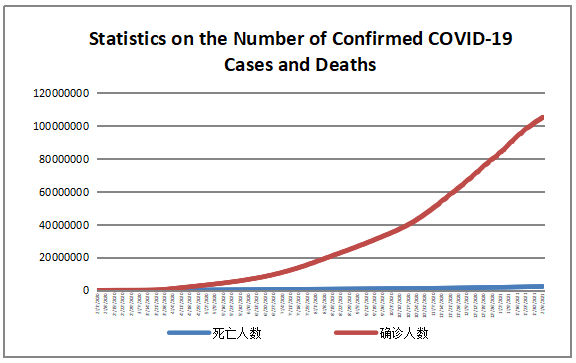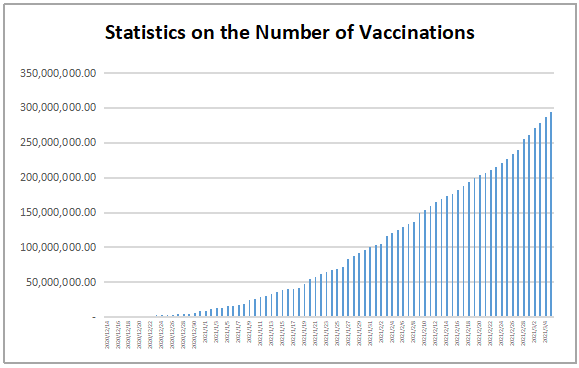The Global Economy Projected to Show Fastest Growth in 50 Years
Time:2021/09/24 BJT
1. Key Concerns
The United Nations Conference on Trade and Development (UNCTAD) released the latest Trade and Development Report on September 15. The report said that this year will see the global economy bounce back owning to the continuation of radical policy intervention and a successful vaccine roll-out in advanced economies. In 2021, the global growth will bounce back with growth of 5.3%, the fastest in nearly 50 years. This recovery, however, is uneven across geographical, income and sectoral lines. Within advanced economies, the rentier class has experienced an explosion in wealth, while low-earners struggle.
Policymakers in advanced economies have not yet woken up to the size of the shock to developing countries or its persistence. Many countries (regions) in the South have been hit much harder than during the global financial crisis, while their heavier debt burden reduces their room for fiscal policy. Constraints on fiscal policy space, lack of monetary autonomy and access to COVID-19 vaccines are holding many developing countries back, widening the gulf with the advanced economies and threatening to usher in another lost decade. “These widening gaps, both domestic and international, are a reminder that underlying conditions, if left in place, will make resilience and growth luxuries enjoyed by fewer and fewer privileged people,” said Rebeca Grynspan, the secretary-general of UNCTAD. “Without bolder policies that reflect reinvigorated multilateralism, the post-pandemic recovery will lack equity and fail to meet the challenges of our time.”
2. Briefing on COVID-19 Pandemic
According to WHO statistics, the cumulative numbers of confirmed COVID-19 cases and deaths have reached 226,236,577 and 4,654,548 as of September 17, 2021. The U.S., the UK, India, Iran and Turkey were the five countries (regions) with the highest number of new confirmed cases in the past seven days. The U.S., Russia, Mexico, Brazil and Iran were the five countries (regions) with the highest number of new deaths in the past seven days.


https://covid19.who.int/
With the increasing production of the COVID-19 vaccine, countries (regions) planed to gradually offer the booster doses to people who got a full course of a vaccine. Statistics from Our World In Data, an online research site of the University of Oxford, presented that a total of 5,815,245,479 vaccine doses have been administered globally on September 15, 2021. According to the report by the Japan Broadcasting Corporation, the Ministry of Health, Labor and Welfare of Japan said that the government plan to administer the third COVID-19 vaccine shots to people, as foreign studies show that COVID-19 antibodies will decrease over time. The plan was approved to start inoculating people at least eight months after they received their second dose. Singapore Prime Minister Lee Hsien Loong announced via social media on September 17, 2021, that he received his Covid-19 vaccine booster does at the Singapore General Hospital. He said that cases are increasing rapidly and a booster shot will better protect Singaporean citizens against Covid-19. Before that, the Singapore government stated that seniors who completed two vaccinations at least six months ago will receive a short message service of being offered a booster shot. In addition, according to Reuters, Indonesian Health Minister Budi Gunadi Sadikin said his country is in talks with the World Health Organization (WHO) as well as six drug companies to become a global hub for manufacturing vaccines. Budi Gunadi Sadikin stated in the interview with Reuters that Indonesia would kick start the initiative by prioritizing purchases of COVID-19 vaccines from companies that shared technology and set up facilities in Indonesia. "We are working with the WHO to be one of the global manufacturing hubs for mRNA," he said.

https://ourworldindata.org/covid-vaccinations
With the increase of the COVID-19 vaccine coverage, many countries (regions) gradually relaxed restrictive measures. In Europe, Denmark has officially lifted all domestic restrictions after 548 days of regulations and declared that COVID-19 is no longer a critical threat to society, making it the first EU country to lift all domestic restrictions. Sweden proclaimed that most restrictions will be removed by the end of September. French President Emmanuel Macron announced on September 16 that he would consider relaxing the existing restrictions against the pandemic. In Africa, on September 14 local time, the Namibian government announced the adjustment of the national pandemic prevention regulations, easing the upper limit of the number of public gatherings from no more than 100 to no more than 150 people at a time, and appropriately relaxing the wine sales regulations. South Africa has relaxed restrictions on people movement and gathering since September 13, limiting the number of indoor gatherings to 250 and outdoor gatherings to 500. The hours of curfews will be shortened and non-essential facilities like restaurants, bars, and fitness centers can be open to 22:00 per day. Zimbabwe has revised the national closure from level 4 to level 2, restoring intercity travel, reducing curfews, extending business hours, allowing restaurants and bars to open, and allowing all sports venues and gyms to reopen. Botswana has resumed public gatherings such as weddings and reopened schools since last week. In addition, Mozambique, Malawi, Madagascar and other countries have relaxed domestic pandemic prevention and control restrictive measures and restrictions on international travel to varying degrees. In Asia, the South Korean government announced that restaurants and cafes in Seoul and its surrounding areas where the Level 4 social-distancing guideline was kept in place can be opened until 10 pm local time, extending by one hour. The number of people who are allowed to gather will be permitted to rise to six including people who are fully vaccinated. As for the multi-use facilities in areas under the Level 3 guideline, the number of people at a private gathering can increase to eight including four fully vaccinated people, and the admission limit for the wedding ceremony is increased to 99 without providing meals. Hishammuddin, Senior Minister of the Ministry of Defense of Malaysia, stated on September 14 that Malaysia will fully relax the restrictive measures for pandemic prevention within two to three weeks and reduce the standard operating procedures of the National Recovery Plan from 181 to only 10. Also, the Malaysian government has discussed the possible relaxation of several measures, including increasing non-island tourist bubble destinations and opening gyms, etc. Phiphat Ratchakitprakarn, Minister of Tourism and Sports of Thai said on September 15 that foreign tourists who have completed the COVID-19 vaccination will be exempted from 14-day quarantine when entering the Thai capital Bangkok since October 15. Prior to this, the four provinces of Chiang Mai, Prachuap Khiri Khan, Phetchabun and Chonburi announced that they will implement the quarantine exemption for tourists who have been vaccinated against the COVID-19 pandemic from October 1.


